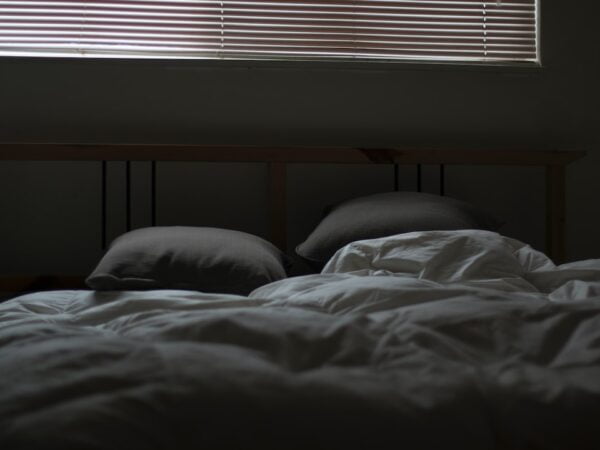
Mastering Sleep Hygiene: The Key to a Restful Night’s Sleep
Sleep hygiene refers to the practices and habits that are necessary for a good night’s sleep. It involves creating a sleep-conducive environment, establishing a consistent sleep routine, managing stress and anxiety, and adopting healthy lifestyle habits. Sleep hygiene is essential for overall health and well-being as it plays a crucial role in cognitive function, physical health, and emotional well-being.
Key Takeaways
- Sleep hygiene is important for overall health and well-being.
- Understanding the science of sleep can help improve sleep quality.
- Common sleep disorders can have a negative impact on sleep quality.
- Creating a sleep-conducive environment and establishing a consistent sleep routine can improve sleep quality.
- Managing stress and anxiety, limiting screen time, and using sleep aids safely can also improve sleep quality.
The Science of Sleep: How It Works and Why It Matters
Sleep is a complex process that occurs in different stages throughout the night. There are two main types of sleep: rapid eye movement (REM) sleep and non-rapid eye movement (NREM) sleep. NREM sleep consists of three stages: N1, N2, and N3. N1 is the lightest stage of sleep, while N3 is the deepest stage of sleep. REM sleep is the stage where dreaming occurs.
Each stage of sleep serves a specific function. During NREM sleep, the body repairs and regenerates tissues, builds bone and muscle, and strengthens the immune system. REM sleep is important for cognitive function and memory consolidation. Lack of quality sleep can lead to impaired cognitive function, decreased attention span, memory problems, and increased risk of chronic conditions such as obesity, diabetes, and cardiovascular disease.
Common Sleep Disorders and Their Impact on Sleep Quality
There are several common sleep disorders that can significantly impact sleep quality. Insomnia is characterized by difficulty falling asleep or staying asleep. It can be caused by stress, anxiety, depression, or certain medications. Sleep apnea is a disorder where breathing repeatedly stops and starts during sleep. It can lead to loud snoring, daytime fatigue, and an increased risk of heart disease.
Restless leg syndrome is a condition characterized by an uncontrollable urge to move the legs, usually accompanied by uncomfortable sensations. It can disrupt sleep and lead to daytime sleepiness. Other sleep disorders include narcolepsy, which causes excessive daytime sleepiness, and parasomnias, which involve abnormal behaviors during sleep, such as sleepwalking or night terrors.
These sleep disorders can have a significant impact on sleep quality and overall health. They can lead to daytime fatigue, decreased cognitive function, mood disturbances, and an increased risk of accidents and injuries. It is important to seek medical attention if you suspect you have a sleep disorder to receive an accurate diagnosis and appropriate treatment.
Creating a Sleep-Conducive Environment: Tips for Setting Up Your Bedroom
| Tip | Description |
|---|---|
| Keep it dark | Use blackout curtains or blinds to block out light from outside |
| Reduce noise | Use earplugs or a white noise machine to block out unwanted sounds |
| Choose the right mattress | Invest in a comfortable and supportive mattress that suits your sleeping style |
| Use comfortable bedding | Choose soft and breathable sheets, blankets, and pillows |
| Keep it cool | Set the temperature between 60-67°F (15-19°C) for optimal sleep |
| Minimize clutter | Keep your bedroom tidy and free of distractions |
| Avoid electronics | Avoid using electronic devices in bed as they can disrupt your sleep |
Creating a sleep-conducive environment is essential for promoting better sleep. Start by choosing a comfortable mattress and pillows that provide adequate support for your body. The ideal room temperature for sleep is between 60-67 degrees Fahrenheit (15-19 degrees Celsius). Use blackout curtains or an eye mask to block out any light that may disrupt your sleep.
Noise can also disrupt sleep, so consider using earplugs or a white noise machine to drown out any unwanted sounds. Keep your bedroom clean and clutter-free to create a calming atmosphere. Remove any electronics or screens from the bedroom as they can emit blue light that can interfere with the production of melatonin, a hormone that regulates sleep.
Establishing a Consistent Sleep Routine: The Benefits of a Bedtime Ritual
Establishing a consistent sleep routine is one of the most effective ways to improve sleep quality. Going to bed and waking up at the same time every day helps regulate your body’s internal clock and promotes better sleep. Create a relaxing bedtime ritual that signals to your body that it’s time to wind down and prepare for sleep.
Engage in activities that promote relaxation, such as reading a book, taking a warm bath, or practicing deep breathing exercises. Avoid stimulating activities or screens before bed as they can interfere with your ability to fall asleep. Instead, create a calm and peaceful environment that promotes relaxation and prepares your body for sleep.
The Role of Diet and Exercise in Promoting Better Sleep
Diet and exercise play a significant role in promoting better sleep. Avoid consuming large meals, caffeine, or alcohol close to bedtime as they can interfere with your ability to fall asleep. Instead, opt for light snacks that promote sleep, such as a small bowl of oatmeal or a banana.
Regular exercise can help regulate your sleep-wake cycle and promote better sleep. Engage in moderate-intensity exercise, such as walking or swimming, for at least 30 minutes a day. However, avoid exercising too close to bedtime as it can increase alertness and make it harder to fall asleep.
Managing Stress and Anxiety: Techniques for Relaxation and Mindfulness
Stress and anxiety can significantly impact sleep quality. It is important to manage stress and anxiety through relaxation techniques and mindfulness practices. Engage in activities that help you relax, such as practicing yoga, meditation, or deep breathing exercises.
Create a bedtime routine that includes relaxation techniques to help calm your mind and prepare your body for sleep. Avoid engaging in stimulating activities or thinking about stressful situations before bed. Instead, focus on positive thoughts and engage in activities that promote relaxation and peace of mind.
Technology and Sleep: The Effects of Screens and Blue Light on Sleep Quality
Technology can have a negative impact on sleep quality due to the blue light emitted by screens. Blue light suppresses the production of melatonin, the hormone that regulates sleep. This can interfere with your ability to fall asleep and stay asleep.
To minimize the effects of blue light on sleep, avoid using screens at least one hour before bed. If you must use screens before bed, consider using blue light filters or wearing blue light-blocking glasses. Keep electronic devices out of the bedroom to create a screen-free environment that promotes better sleep.
Sleep Aids and Medications: When and How to Use Them Safely
Sleep aids and medications can be helpful for short-term use in certain situations, such as when traveling or during times of high stress. However, they should be used with caution and under the guidance of a healthcare professional. Sleep aids can be habit-forming and may have side effects.
If you are considering using sleep aids or medications, consult with your doctor to determine the best option for your specific needs. They can help you weigh the benefits and risks and provide guidance on how to use them safely and effectively.
Putting It All Together for a Good Night’s Sleep
In conclusion, sleep hygiene is essential for overall health and well-being. By understanding the science of sleep, addressing common sleep disorders, creating a sleep-conducive environment, establishing a consistent sleep routine, adopting healthy lifestyle habits, managing stress and anxiety, minimizing screen time, and using sleep aids safely, you can promote better sleep and improve your overall health and well-being. Prioritize sleep hygiene and make it a priority in your daily life for optimal health and wellness.
FAQs
What is sleep hygiene?
Sleep hygiene refers to a set of practices and habits that promote good quality sleep and daytime alertness. It includes behaviors such as maintaining a regular sleep schedule, creating a comfortable sleep environment, and avoiding substances that can interfere with sleep.
Why is sleep hygiene important?
Good sleep hygiene is important for overall health and well-being. Poor sleep hygiene can lead to sleep disorders, such as insomnia, and can also contribute to other health problems, such as obesity, diabetes, and cardiovascular disease.
What are some tips for improving sleep hygiene?
Some tips for improving sleep hygiene include: maintaining a regular sleep schedule, creating a comfortable sleep environment, avoiding caffeine and alcohol before bedtime, avoiding screens before bedtime, and engaging in relaxation techniques before bedtime.
What are some common sleep disorders?
Some common sleep disorders include: insomnia, sleep apnea, restless leg syndrome, and narcolepsy.
When should I see a doctor about my sleep problems?
You should see a doctor if you are experiencing persistent sleep problems that are affecting your daily life. Your doctor can help diagnose any underlying sleep disorders and recommend appropriate treatment options.


















